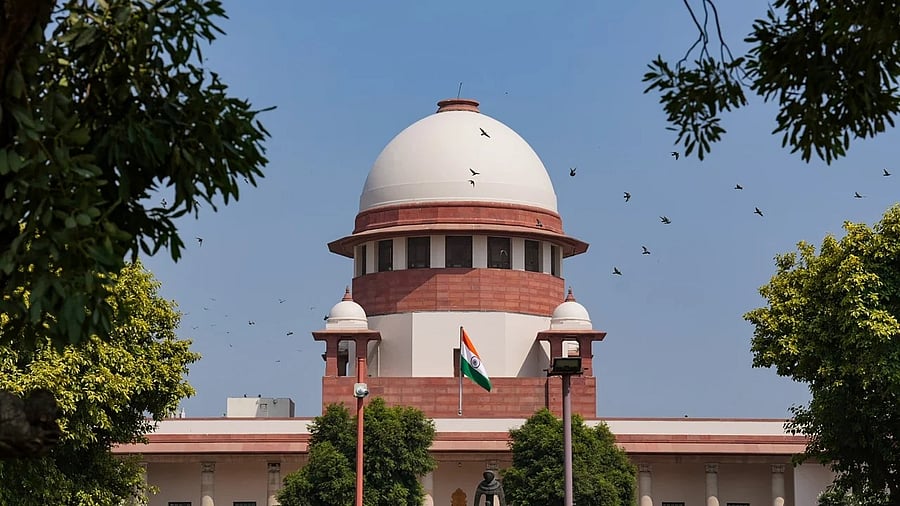
The Supreme Court of India.
Credit: Credit: PTI File Photo
New Delhi: The Supreme Court on Monday issued notices to the Uttar Pradesh government and the prime accused in a chilling Prayagraj murder case, on a plea questioning the Allahabad High Court’s decision to grant bail to the accused despite his alleged confession and recovery of the victim’s decomposed body from his own home.
A Bench of Justice Prashant Kumar Mishra and Justice Vipul M Pancholi, after hearing arguments by Advocates Rajesh G Inamdar and Shashwat Anand for the petitioner, Gulabkali, mother of the deceased woman, Ms Rajkesar Chaudhary, sought responses from the respondents within four weeks.
The plea claimed, the main accused, Ashish Gautam alias Arvind Kumar, admitted and self-confessed during interrogation that he strangled the 35-year-old woman with a jute rope and concealed her body in the septic tank of his newly constructed house in Basariya, Karchhana.
The prosecution alleged the accused was set to marry the deceased, but got his marriage arranged somewhere else and killed her and put her in the septic tank of his own house (substantially bought with her money) to get her out of the way.
The plea by the victim's mother contended, the confession led police to the exact spot, where the decomposed corpse was exhumed in the presence of family members and independent witnesses. The post-mortem recorded death due to asphyxia and shock, confirming homicidal strangulation.
Despite this chain of evidence, i.e., confession, pointing-out, recovery of the body, and forensic corroboration, the High Court granted bail to the accused on September 02, 2025, citing prolonged incarceration, slow trial, and general jail overcrowding, while invoking judgments relating to economic offences.
The petitioner argued that the order was passed without notice to the victim’s family, in violation of the Supreme Court’s ruling in Jagjeet Singh Vs Ashish Mishra requiring victims to be heard at every stage.
The plea described the High Court’s decision as “perverse,” alleging that crucial material such as the accused’s own confession, recovery memos, post-mortem findings, and the brutal modus operandi were ignored. It also highlighted repeated delays allegedly caused by the accused even while in custody.
Taking note of the allegations, the court called upon the State and the accused to explain the circumstances under which bail was granted in such a grave and shocking case.
The matter is to be heard likely after four weeks.
